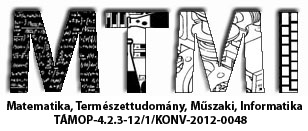Psychological resilience and its determinants among English-speaking medical students
Előadás adatai
There is an increasing concern about the mental state of students in higher education, medical students in particular. Several studies highlighted the difficulties that medical students have to face. Our earlier survey revealed that psychological distress was significantly greater in a sample of Hungarian medical students than in the same age group of the general population. A follow-up study has been implemented to describe the changes of the mental health of medical students during their studies. The present paper summarizes results on psychological resilience among medical students who study in English at the beginning of their first and second years.
A follow-up survey was launched among first-year medical students in September 2009. The same survey was repeated one year later. An anonymous standardized self-administered questionnaire was used to collect demographic data, data on perceived stress measured by PSS-4 and the GHQ-12 scales, as well as depression, anxiety and stress measured by the DASS-21, sense of coherence measured by SOC-13, social support and perceived health using validated scales.
There were 238 respondents in 2009 and 171 respondents in 2010. Psychological resilience was measured by GHQ-12, PSS-4, and DASS-21 among English students in both years. Mental distress measured by the GHQ-12 significantly increased for the second year (p=0.042). Perceived stress was quantified by PSS-4 and was also found to be increased from 2009 to 2010 (p=0.024). Stress as one dimension of the DASS-21 scale was also found to be increased by the second year (p=0.029). Neither depression (P=0.051) nor anxiety (p=0.268) increased from year 1 to year 2. Distress was no different from 2009 to 2010 among those who had been or who had not been under psychiatric treatment before. Sense of coherence and social support had a significantly positive impact on psychological stress whether it was measured by GHQ-12, PSS-4 or DASS-21 (p<0.000 for all regressions).
Psychological stress increased among English-language medical students from their first year to the second. However, a strong sense of coherence and stable social support increase psychological resilience.
Támogatók: Támogatók: Az NTP-TDK-14-0007 számú, A Debreceni Egyetem ÁOK TDK tevékenység népszerűsítése helyi konferencia keretében, az NTP-TDK-14-0006 számú, A Debreceni Egyetem Népegészségügyi Karán folyó Tudományos Diákköri kutatások támogatása, NTP-HHTDK-15-0011-es A Debreceni Egyetem ÁOK TDK tevékenység népszerűsítése 2016. évi helyi konferencia keretében, valamint a NTP-HHTDK-15-0057-es számú, A Debreceni Egyetem Népegészségügyi Karán folyó Tudományos Diákköri kutatások támogatása című pályázatokhoz kapcsolódóan az Emberi Erőforrás Támogatáskezelő, az Emberi Erőforrások Minisztériuma, az Oktatáskutató és Fejlesztő Intézet és a Nemzeti Tehetség Program



